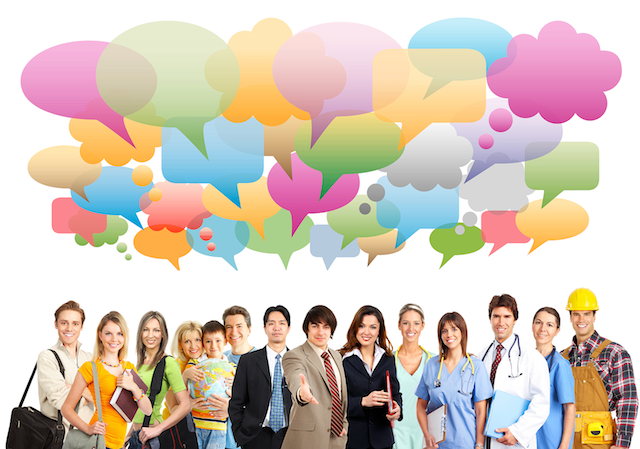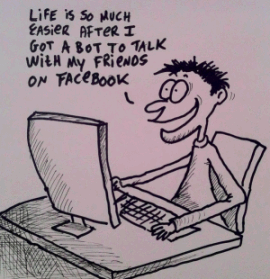Recently I was asked to give a talk about social media. Many companies are interested in this buzz-compliant, over-hyped topic. At every conference in the gaming world, there are a few lectures on social media. All of the ones I have attended have a simple message: if your company is not on Facebook or Twitter, you’re not in the game. Then they talk about how wonderful these two services are. However, if your social media strategy is simply to sign up to Facebook and Twitter, don’t bother. That strategy will fail.
These two sites may be part of a strategy but they are only a part of a tactical implementation of the a social media strategy. The reason this poor strategy is so common is in my mind the lack of understanding of social media. My simple definition of social media is that social media is a form of communication or conversation.
The problem with the term social media is that it’s an overloaded word, and can mean different things to different people. In fact, there are different categories of social media. Gartner defines four categories. Social networking is all about connections and relationships. You connect to people and establish relationships, often categorized. Facebook is an example of this. Social collaboration is all about sharing ideas using tools like blogs, wikis, and IM. Social feedback is about user recommendations and ratings. Many sites provide functionality for this. Social publishing is about getting your content out there. Blogs, Twitter, Facebook, and YouTube are examples.
What’s new with social media is that we now have new tools for one-to-many and one-to-one communication. Individuals have the opportunity to express themselves and be heard. But when thinking about this conversation, the trick is to think analog. Imagine if you take all the tools and technologies away. Instead of using Facebook, you’re just letting your friends know what you are doing and you are showing them pictures and inviting them to events. Instead of reading a blog, you are reading an article right now. Instead of IM, you are having a conversation. Just use the normal words and forget technology and tools. Then it’s easier to get the real meaning of social media.

Thus, a better social media strategy is to plan what the communication should be about – that is the part you can control, at least partly, and who should be responsible. This might be deciding the content offered, what type of tweets to send, what type of articles to put on your corporate homepage and how to communicate, how to get followers etc. Once the strategy is clear, it needs to be implemented by a person or persons that are responsible. The third part of a social media strategy is to listen. This is the key. Since social media is communication you have to listen. It is not a one-way broadcast communication.
It is also important to realize that this communication is ongoing. You might need plan the strategy and implement it in the beginning but don’t expect the task to end any time soon.
Companies that have call centers can give this responibilty to their phone workers. This might actully have the benefit of reducing cost, since one person can only take one conversation using the phone, but can handle mutliple threads of communcation through Twitter for example.
Having defined the conversations, then you choose tools. Facebook and Twitter are important but social media also has many other tools. Blogs like WordPress provides, photo services like Flickr, bookmarks services like Delicious, wikis for collaboration, and so on. Indeed, there are more tools in the Conversation Prism than you think, and many of these you’ve probably never heard of.
The important part of creating a social strategy is to think about the conversation – just ignore the tools. Companies have one-to-one communication with their clients, how should they organize the conversation. And like in so many cases with technology, we must learn to walk before we learn to run.







